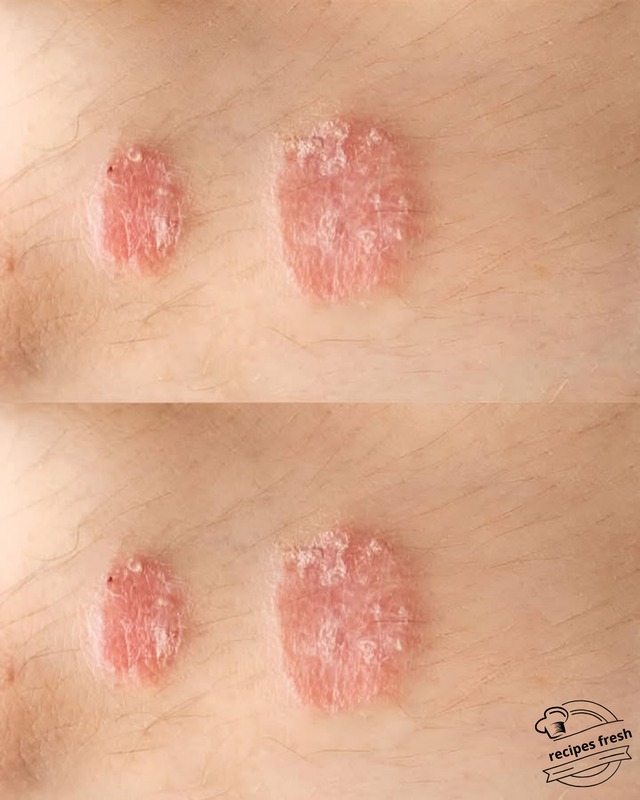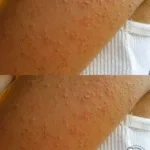Title: 10 Common Skin Signs and What They Mean
Introduction:
Our skin is an important indicator of our overall health. It often provides us with clues about what is going on internally, such as vitamin deficiencies, hormonal imbalances, and even certain medical conditions. In this article, we will explore 10 common skin signs and what they may indicate about your health.
Headings with Paragraphs:
-
Acne:
Acne is a common skin condition that affects millions of people worldwide. While acne can be caused by a variety of factors, including hormonal imbalances and poor skincare habits, it can also be a sign of underlying health issues such as PCOS or digestive problems. If you are experiencing persistent acne, it may be worth consulting with a dermatologist to rule out any potential health concerns. -
Dry, flaky skin:
Dry, flaky skin can be a result of environmental factors, such as cold weather or excessive sun exposure, but it can also be a sign of dehydration or a lack of essential fatty acids in the diet. Drinking plenty of water and incorporating healthy fats into your diet can help improve the appearance of dry, flaky skin. -
Rash:
Rashes can be caused by a variety of factors, including allergic reactions, infections, and autoimmune disorders. If you notice a persistent rash on your skin, it is important to seek medical attention to determine the underlying cause and receive appropriate treatment. -
Dark circles under the eyes:
Dark circles under the eyes can be a sign of fatigue, stress, or a lack of sleep. However, they can also be indicative of allergies or anemia. Ensuring you are getting enough rest and taking steps to manage stress can help reduce the appearance of dark circles, but if they persist, it may be worth consulting with a healthcare provider. -
Red, inflamed skin:
Red, inflamed skin can be a sign of irritation or an allergic reaction, but it can also be indicative of conditions such as eczema or psoriasis. Keeping your skin moisturized and avoiding harsh skincare products can help reduce redness and inflammation, but if these symptoms persist, it is important to consult with a dermatologist for proper diagnosis and treatment. -
Excessive sweating:
Excessive sweating, also known as hyperhidrosis, can be embarrassing and uncomfortable. While it is not always indicative of an underlying health condition, it can be a symptom of hormonal imbalances, diabetes, or thyroid issues. If you are experiencing excessive sweating, it is important to consult with a healthcare provider to determine the cause and explore treatment options. -
Yellowing of the skin:
Yellowing of the skin, also known as jaundice, can be a sign of liver dysfunction or bile duct obstruction. If you notice a yellow tint to your skin or eyes, it is important to seek medical attention immediately, as this could be a sign of a serious health issue that requires prompt treatment. -
Skin tags:
Skin tags are small, benign growths that commonly appear on the neck, underarms, and groin area. While they are generally harmless, they can be a sign of insulin resistance or hormonal imbalances. If you are concerned about skin tags or notice changes in their appearance, it is best to consult with a dermatologist for evaluation. -
Hives:
Hives are raised, red welts that are typically caused by an allergic reaction. While they are usually temporary and can be treated with antihistamines, hives can also be a sign of underlying health conditions such as autoimmune disorders or infections. If you experience frequent or severe hives, it is important to seek medical attention. -
Unexplained bruising:
Unexplained bruising can be a result of trauma, but it can also be indicative of vitamin deficiencies or blood disorders. If you notice frequent or severe bruising that cannot be attributed to an injury, it is important to consult with a healthcare provider to rule out any potential health concerns.
Ingredients with Quantity:
- Skin care products suitable for your skin type
- Water
- Healthy fats (such as avocados, nuts, and seeds)
- Antihistamines
- Vitamin supplements (if recommended by a healthcare provider)
Directions and Preparation Method:
- Identify the skin sign you are experiencing and take note of any other symptoms you may be experiencing.
- Make any necessary lifestyle changes, such as staying hydrated, getting enough rest, and managing stress.
- Consult with a healthcare provider, such as a dermatologist or primary care physician, for proper diagnosis and treatment recommendations.
- Follow the recommended treatment plan and continue to monitor your skin for any changes or improvements.
FAQs:
Q: Can skin signs be indicative of serious health conditions?
A: Yes, certain skin signs can be indicative of underlying health issues and should not be ignored.
Q: How can I improve the appearance of my skin?
A: Incorporating a healthy skincare routine, staying hydrated, and eating a balanced diet can help improve the appearance of your skin.
Q: When should I seek medical attention for a skin sign?
A: If a skin sign persists, worsens, or is accompanied by other concerning symptoms, it is important to seek medical attention for proper evaluation and treatment.
Conclusion:
Our skin is truly a reflection of our overall health, and paying attention to changes in our skin can help us identify potential health concerns. If you notice any unusual skin signs or symptoms, it is important to consult with a healthcare provider for proper evaluation and treatment. By taking care of our skin and addressing any concerns promptly, we can maintain healthy skin and overall well-being.





